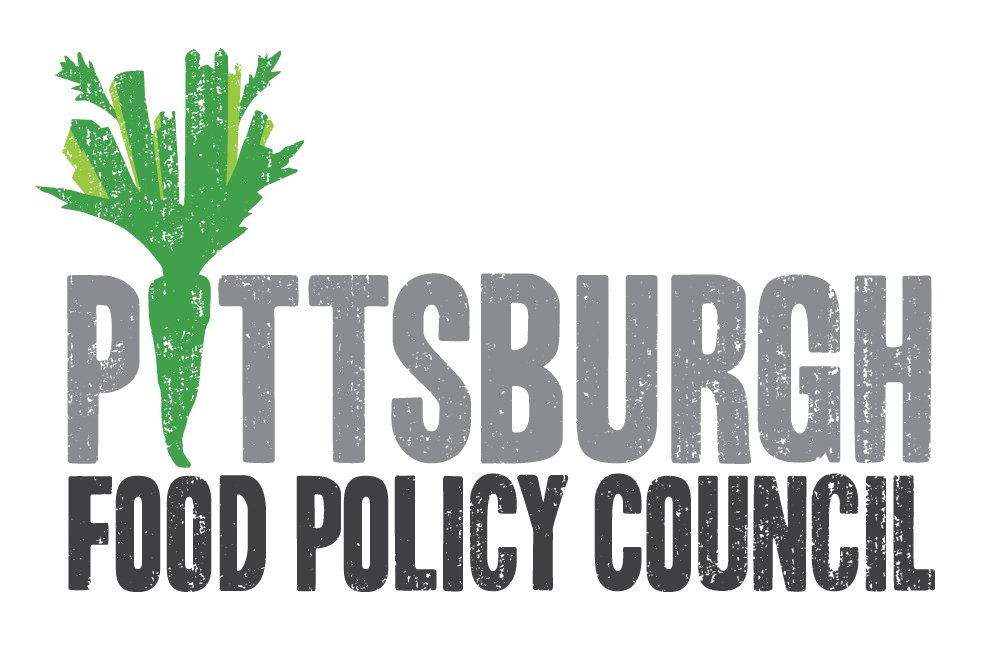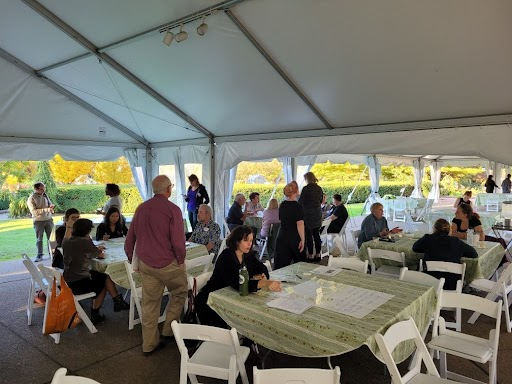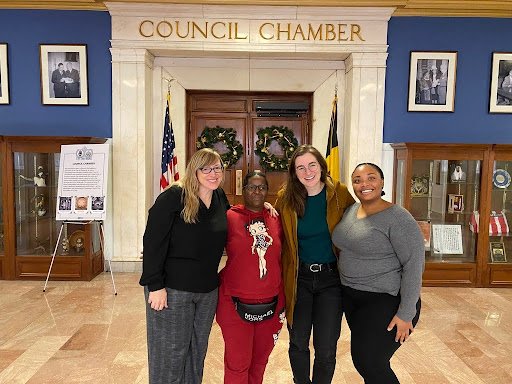Advocacy Win! $100K for Compost Planning and Implementation in the City
In December, PFPC staff and Community Compost Subcommittee members drafted a sign-on letter in support of resolution 2023-2300, amending the City of Pittsburgh’s ARPA funds and allocating $100,000 to compost planning and implementation. The letter was signed by over 100 community members and small compost businesses. The PFPC mobilized15 of these supporters, who showed up with staff to share their thoughts during the December City of Pittsburgh budget hearings! In addition to in-person comments, PFPC members channeled calls for advocacy into their own work - Deirdre Keller, a teacher at the Environmental Charter School, encouraged her students at the Environmental Charter School to share their thoughts about compost with Councilmembers.
The comments made connections between the need for compost infrastructure and the City of Pittsburgh Climate Action Plan goal of Zero-Waste by 2030. It also resulted in $100,000 dedicated compost funding for the City of Pittsburgh - we can’t wait to continue this work with our partners!
More Background Information:
The PFPC Community Compost Subcommittee first convened in 2021 with an initial goal of connecting compost enthusiasts, micro haulers, urban gardens, zero waste programs and others. Meetings centered on identifying shared needs and available resources - both material and educational - as well as existing and possible policy options for easier and more widespread community composting.
This year, in a giant leap forward for city composting, the City of Pittsburgh Department of City Planning launched SoilMill PGH, a community composting pilot program. The pilot, which occurred throughout Summer and Fall 2023, offered participants the option of composting in one of five ways: Subsidized Curbside Pick-Up Services, Vermicomposting, Bokashi Composting, Yard Tumbler/Turner, Hot Bin/Yard Bin Composting, Public Drop Off Locations. It was funded by grants from USDA and the National Resources Defence Council and completed in partnership with the Pennsylvania Resources Council.
To celebrate the end of the inaugural compost pilot, the Pittsburgh Food Policy Council teamed up with Pasa Sustainable Agriculture, the Pennsylvania Resources Council and the office of Councilwoman Gross to host a feedback session and composter gathering at Phipps Botanical Gardens and Conservatory. About 55 community members joined us to discuss barriers to composting and their hopes for the City of Pittsburgh’s organic waste management future.
Through 40 survey responses and these in-person conversations, we know there is significant support for:
free and subsidized home/curbside pick-up services
more opportunities for education and neighborhood composting networks
localized food scrap drop-off locations
access to robust composting options through community gardens
assistance for starting successful household-level compost systems.
In addition to these findings regarding what residents support and want to see, they identified the following challenges:
cost of composting
access to resources
limited awareness of composting initiatives (led by the City of otherwise)
barriers associated with uptake (lack of space, fear of smell, limited time)
PFPC members and compost enthusiasts gather at Phipps Conservatory and Botanical Gardens to share their vision for organic waste management on October 24th, 2023.
The Greater Pittsburgh Food Action Plan (GPFAP) - a living document that details strategies for a more just, equitable and sustainable food system and is the culmination of input from over 700 county residents - also outlines strategies for increased compost infrastructure Recommendations specific to municipal compost, and relevant to the City budget, include:
Recommendation 2.4: Conduct municipal waste audits.
Recommendation 2.7: Provide compost education and support to the general public.
Strategy 2.7.2: Develop targeted educational and awareness campaigns on the value and benefits of compost.
Recommendation 2.8: Support household efforts to divert food waste into compost.
Strategy 2.8.1: Develop central drop off locations for residential compost.
Strategy 2.8.2: Continue to explore the potential and feasibility of municipal composting programs.
PFPC members + staff share why they want the City to dedicate funding to compost research and implementation on Dec. 12th, 2023



